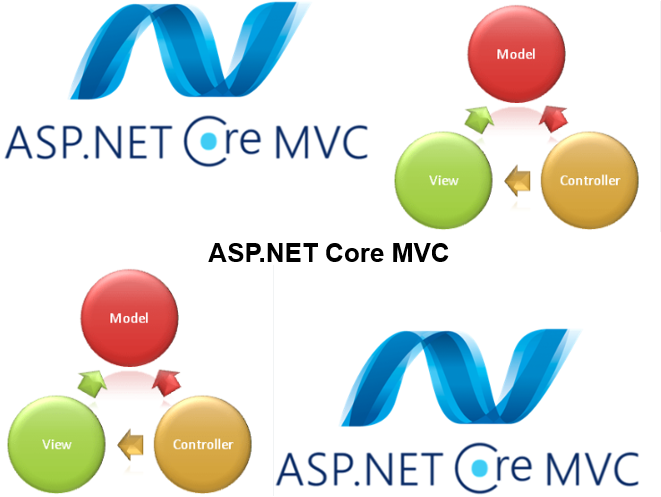-
Learning by doing
-
Trainers with practical experience
-
Classroom training
-
Detailed course material
-
Clear content description
-
Tailormade content possible
-
Training that proceeds
-
Small groups
In the course ASP-NET Core MVC from SpiralTrain participants learn to create dynamic and feature-rich web applications using the ASP.NET Core Model View Controller (MVC) framework. The course explains the emphasizes the benefits of MVC architecture with the use of separation of concerns and covers advanced topics such as routing, controllers, views, models and integrating with databases.
The course ASP.NET Core MVC starts with an overview of ASP.NET Core MVC, covering its architecture, advantages, and how it differs from traditional ASP.NET.
Next the role of controllers in the Model-View-Controller (MVC) pattern is explained Participants learn to define actions to handle HTTP requests, route them to the appropriate controller, and generate responses.
Also the creation of dynamic views using Razor syntax is covered and how to generate HTML content dynamically, work with layouts, and create modular views for a consistent user interface.
How to work with models to represent data in an application is treated as well as exploring data binding techniques to connect models to views and handle user input.
Next routing in ASP.NET Core MVC is on the course schedule. Explained are URL patterns, route parameters, and constraints to control how URLs map to controller actions.
Then the Entity Framework Core is discussed with performing CRUD (Create, Read, Update, Delete) operations and database migrations.
Security concepts are treated as well like authentication and authorization mechanisms, and control access to resources.
Also hosting ASP.NET Core MVC applications in Internet Information Services (IIS) is treated and attention is paid to the configuration and deployment aspects of hosting on Windows servers.
Finally real-time communication with ASP.NET SignalR is covered and participants learn to implement features like live chat and notifications.
The course ASP.NET Core MVC is intended for Web Developers and Architects who want to learn how ASP.NET Core MVC web applications can be designed and developed.
To participate in the Course ASP.NET Core MVC good knowledge of basic Web Applications is desirable and basic knowledge of C# is required.
The course has a hands-on character. The theory is discussed using presentation slides and demos and is interchanged with exercises.
After successfully completing the course, the attendants will receive a certificate of participation in ASP.NET Core MVC.

Module 1 : Intro ASP.NET Core MVC |
Module 2 : Controllers and Actions |
Module 3 : Views and Razor |
|
What is MVC Pattern? MVC Architecture Separation of Concerns Controllers Models Views Using Visual Studio ASP.NET Core Project Service Classes Dependency Injection Project Structure |
Controllers in MVC Grouping Actions Controller Suffix Request Handling Explicit Dependencies Action Injection Model Instantiation IActionResult Task Helper Methods Redirect |
Data Presentation Views User Interaction Views cshtml Files View Components Partial Views Razor Pages Embedded Razor Markup Razor Syntax Tag Helpers Model Validation CSS Isolation |
Module 4 : Models and Data Binding |
Module 5 : Routing and URL Patterns |
Module 6 : Entity Framework Core |
|
Model Binding Data Sources Mapping Requests Type Conversions Form Collection Input Values Binding Primitives Binding Complex Types Searching for Parameters Value Providers |
Routing in MVC Configuring Routes RouteConfig Class MapRoute Method RouteTable Class URL Pattern Syntax URL Mapping Multiple Routes Route Constraints Registering Routes |
What is EF Core? Object Relational Mapping Database Providers Context Object Creating Connections Generating Models EF Migrations Querying with LINQ Saving Data Transactions |
Module 7 : Security |
Module 8 : IIS Hosting |
Module 9 : ASP.NET SignalR |
|
Security and Identity Authentication Methods User Credentials Windows Authentication OAuth2 Sign-on Login Forms Two Factor Authentication Role Based Authorization Cross Site Scripting Cross Site Request Forgery |
IIS Manager Application Pools Visual Studio Deployment Initial Deployment Stage Publishing Adding a Website Choosing Local Domain Edit host File Set IP Address Set Host Name |
What is Signal R? Real Time Functionality Server Push Supported Transports WebSockets Server-Sent Events Long Polling Hubs JSON Protocol MessagePack |
